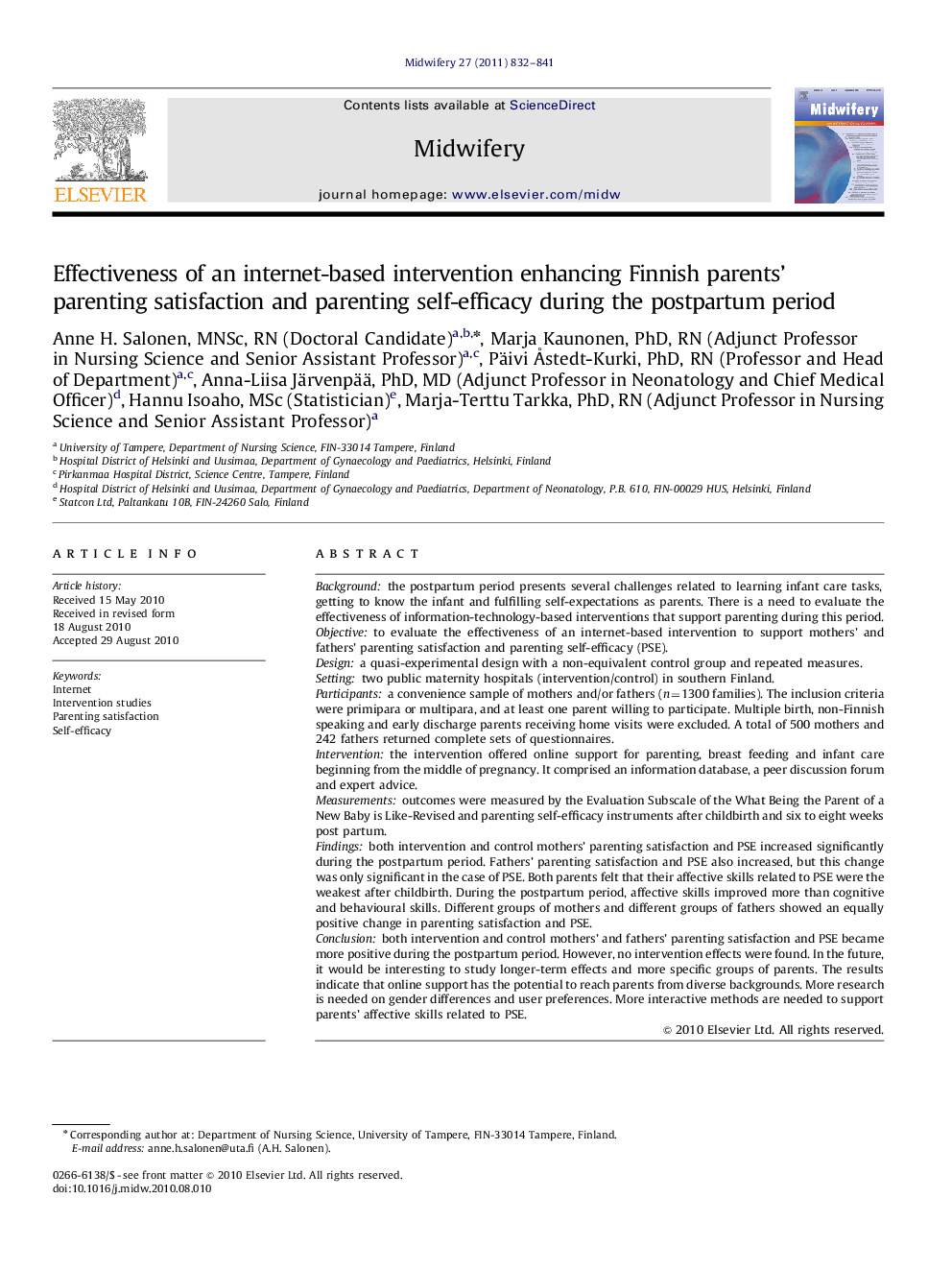| Article ID | Journal | Published Year | Pages | File Type |
|---|---|---|---|---|
| 1085016 | Midwifery | 2011 | 10 Pages |
Backgroundthe postpartum period presents several challenges related to learning infant care tasks, getting to know the infant and fulfilling self-expectations as parents. There is a need to evaluate the effectiveness of information-technology-based interventions that support parenting during this period.Objectiveto evaluate the effectiveness of an internet-based intervention to support mothers’ and fathers’ parenting satisfaction and parenting self-efficacy (PSE).Designa quasi-experimental design with a non-equivalent control group and repeated measures.Settingtwo public maternity hospitals (intervention/control) in southern Finland.Participantsa convenience sample of mothers and/or fathers (n=1300 families). The inclusion criteria were primipara or multipara, and at least one parent willing to participate. Multiple birth, non-Finnish speaking and early discharge parents receiving home visits were excluded. A total of 500 mothers and 242 fathers returned complete sets of questionnaires.Interventionthe intervention offered online support for parenting, breast feeding and infant care beginning from the middle of pregnancy. It comprised an information database, a peer discussion forum and expert advice.Measurementsoutcomes were measured by the Evaluation Subscale of the What Being the Parent of a New Baby is Like-Revised and parenting self-efficacy instruments after childbirth and six to eight weeks post partum.Findingsboth intervention and control mothers’ parenting satisfaction and PSE increased significantly during the postpartum period. Fathers’ parenting satisfaction and PSE also increased, but this change was only significant in the case of PSE. Both parents felt that their affective skills related to PSE were the weakest after childbirth. During the postpartum period, affective skills improved more than cognitive and behavioural skills. Different groups of mothers and different groups of fathers showed an equally positive change in parenting satisfaction and PSE.Conclusionboth intervention and control mothers’ and fathers’ parenting satisfaction and PSE became more positive during the postpartum period. However, no intervention effects were found. In the future, it would be interesting to study longer-term effects and more specific groups of parents. The results indicate that online support has the potential to reach parents from diverse backgrounds. More research is needed on gender differences and user preferences. More interactive methods are needed to support parents’ affective skills related to PSE.
